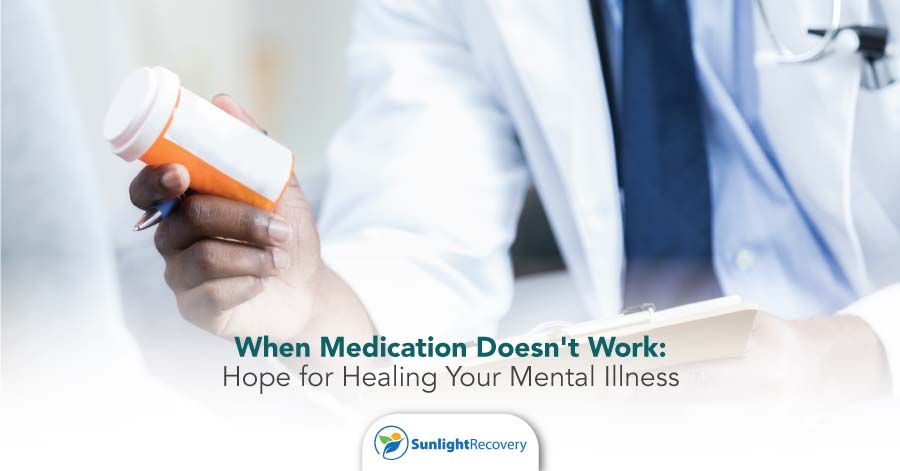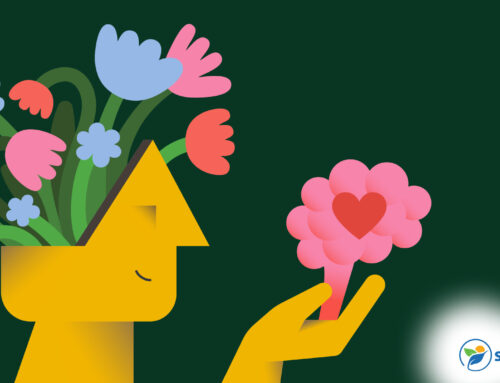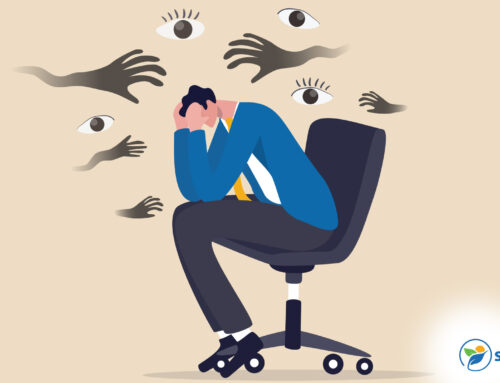Mental illness is a growing epidemic in the United States. For those seeking treatment, medication has long been used as a source of relief. However, when medication does not work, there are alternative methods of mental illness treatment that allow for proper rehabilitation.
Mental Illness in America
In the United States, almost 18.5% of adults are dealing with mental illness while 4% have a major one that presents a significant challenge to their daily lives. For children and young adults, one in four from age 13 to 18 are expected to cope with a disorder at some time in their lives, anxiety and depression being a common factor across all demographics.
Although there is a variety of mental illness treatment, many people feel ashamedto admit they are struggling and so opt to take pills as that is the most discreet option where the least amount of people will find out. It helps that there is a wide range of anti-anxiety and anti-depressant medications that can easily be obtained with a prescription. The stigma towards mental health frames it as a weak, lesser, or fake condition not worth treatment. As a result of this, such individuals often feel a sense of judgment in both professional and personal spaces that further drives them to hide their illness.
Medical Treatment Options
Medication has played a huge role in the treatment of mental disorders. Sometimes, mental illnesses correspond to a chemical imbalance in the brain that such drugs help to regulate. The type and amount of drug should be determined by a medical professional and varies based on the severity of symptoms being treated. For example, with obsessive compulsive disorder, selective serotonin reuptake inhibitors (SSRI) as prescribed despite their traditional usage as antidepressants.Other times, the cause of the mental illness is less clear and the medicaiton’s purpose is to treat the symptoms of the disorder.
Depression is sometimes a side effect of OCD but even without this the very same drugs are recommended. SSRIs alter a neurotransmitter in the brain called serotonin that is released to produce feelings of well-being and happiness. If there is not enough serotonin, then the nerves in the brain are poorly communicating and triggering a mental illness as a result. People with obsessive compulsive disorder are found to have low levels of serotonin and so utilize medication. However, for some people the medication does not work or leads to serious side effects. In this event, such treatment is not worth the potentially deadly consequences.
Alternative Mental Illness Treatment Options
While drugs are often seen as the only way to cure the unbalance caused by mental disorders in the brain, there are other forms of mental illness treatment that do the same thing in a much healthier way. Sleep is one of these substitute methods. In intervals of an hour and a half, an individual typically goes through two types of sleep.
The first one, quiet sleep, is where the person goes through four stages of deep sleep accompanied by the muscles relaxing, heart rate lowering, breathing slowing, and temperature dropping. The second category is REM sleep, where REM stands for rapid eye movement. It is in this stage that human beings dream. Blood pressure, heart rate, body temperature, and breathing all increase during this point. The is the period of sleep that improves memory, learning, and emotional well-being.
Mental disorders like we know commonly lead to sleep disorders like insomnia. Maintaining a structured sleep schedule can help to reduce the symptoms of mental illness and keep hormones and neurotransmitters levels normal. This allows for better thinking and cognitive functioning overall.
Having a proper diet and nutrition is also another form of mental illness treatment. What we eat has a direct effect on how we feel. Food makes up a critical aspect of our everyday lives. We eat when we celebrate, we eat to cope with hard situations, we eat because we have to. There is such variety in the types of food to choose from and so that choice should be made wisely.
Sometimes the “comfort foods” we consume to make ourselves feel emotionally happy in the short term are not the best options for long-term mental health. So maybe the best idea is to leave the pizza and chocolate alone in favor of peace of mind. Healthy foods, while maybe not as tasty, are capable of boosting our emotional health and counteracting the negative spaces that mental disorders often put people in. Nutrition is a much less expensive way to change your mood and combat anxiety and depression in comparison with medications. A balanced diet improves mental functioning, offsetting changes made to the brain chemistry by mental illness.
Studies have shown that caloric intake is a major component of mental health. When cut in half, the deficiency in calories lead to test subjects developing odd eating habits, emblematic of food disorders, as well as the appearance of depression-like behaviors. In addition to what is lacking with calories, supplements can help to make up for other vitamins and nutrients which are in short supply. B12, which is tied to strong memory and stable mood, can be obtained through various means.
Proper amounts of exercise are a great way to round off alternative mental illness treatment. It releases endorphins in the brain that have a positive impact on chemistry. Endorphins produce feelings of euphoria and pleasure that counteract the effects of depression and anxiety. Physical activity can help to get rid of tension and stress, making you physically and mentally at ease. Exercise also makes one physically tired, preventing sleep disorders. It generates hunger and boosts self-esteem, making eating disorders less likely. Mental illness also tends to make people feel isolated, but exercising at a gym or with friends induce social situations that make you more integrated into society and get rid of those thoughts of loneliness. Shifting around exercise routines is also a good technique to add variety to the day so there will be no monotony to put you down, which is often the case for people that get stuck in a boring routine.
Contact Sunlight Recovery
If medication does not work, or makes you feel sick, there is no reason to continue using it. If you are struggling with an existing addiction and are weary of using pills to help kick your habit, medication is not the be all, end all of your recovery. There are still other methods available that you can use to achieve full recovery. If you or someone you know wants to find out more about alternative forms of mental illness treatment please contact Sunlight Recovery at 844-426-0790 for assistance on how to proceed.







Leave A Comment